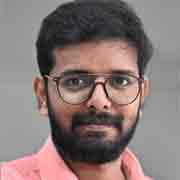VS’ emotion, EP’s confession and Nair’s indignation: A look at Kerala’s voting day dramas

Mail This Article
Kochi: Political drama on voting day has become a part of Kerala’s election folklore. On Wednesday, when the Wayanad Lok Sabha constituency and Chelakkara assembly segment went to the polls, CPM veteran EP Jayarajan again found himself at the centre of a political controversy. On bypoll day, Kerala woke up to reports of Jayarajan terming the second Pinarayi Vijayan government “weak” and calling P Sarin, LDF's candidate in the Palakkad assembly bypoll, an opportunist in his unpublished autobiography.
Jayarajan’s strained relationship with his party after being removed as Convener of the Left Democratic Front (LDF) made the controversy all the more damaging for the Left camp. However, the former state minister was quick to distance himself from it. Publisher DC Books postponed the release of Jayarajan's autobiography “Kattanchayayum Parippuvadayum: The Life of a Communist” after Jayarajan said he did not write the content that appeared in the media. He said he had not finished writing his book nor finalised the publisher.
While Jayarajan was quick to shift into denial mode on Wednesday, his admission of what many would consider a political sacrilege in Kerala’s political sphere is what made April 26 – the day Kerala voted for the 2024 Lok Sabha elections – dramatic. Jayarajan, coming out of his polling booth at a school in Kannur, confirmed to the media that he had a brief meeting with Prakash Javadekar, the BJP leader in charge of Kerala, at his son’s flat in Thiruvananthapuram. Though Jayarajan said that the meeting was initiated by Javadekar and that politics was not discussed there, the confession shocked the Left circles in the face of a crucial election.
Jayarajan’s admission was widely interpreted by his political rivals as a confirmation of the allegation that he was cosying up to the BJP. The polling day bomb Jayarajan dropped was later counted by many, including the Left camp, as one of the several reasons that led to the front's debacle in the Lok Sabha elections. The CPM also cited the confession as a reason for his removal from the post of LDF Convener.
VS makes a visit
Kerala’s tryst with election day drama did not start with Jayarajan. CPM stalwart VS Achuthanandan staged the biggest of them all in 2012. On June 2 that year, the former chief minister visited the house of slain CPM dissident TP Chandrasekharan in a rare show of camaraderie with strong political implications. Visuals of Achuthananadan struggling to console Chandrasekharan’s wife, KK Rema, did all the political messaging on the day the Neyyatinkara assembly bypoll was on.

Achuthanandan’s emotionally charged gesture was in stark contrast to the CPM’s official line that the party had no role in the killing of Chandrasekharan, who had floated the Revolutionary Marxist Party (RMP) along with like-minded comrades, questioning the then CPM leadership. The timing of Achuthanandan’s visit to Chandrasekharan’s house was naturally seen as a political gesture against the party leadership. As it happened, the CPM lost the Neyyatinkara bypoll to R Selvaraj, who defected from the party and won on a Congress ticket.
Nair's indignation
If most bypoll dramas have a political leader at their centre, the 2021 Assembly polls saw a community leader taking centre stage on voting day. In an unusual manner, Nair Service Society (NSS) general secretary G Sukumaran Nair attempted to influence voters against the ruling LDF by invoking the Sabarimala controversy.

Coming out after voting, Nair told the media that the Ayyappa devotees in the state were still bitter about the events that hurt their feelings. He was referring to the incidents that followed a Supreme Court order that lifted the ban on women of menstruating age entering the Sabarimala temple. The state had seen widespread protests by Hindu groups who saw the state government’s perceived haste to implement the order as an attempt to hurt their faith and religious sentiments. Nair took a stand on polling day by calling for a change in government. His call had little effect, though, as the election results proved.


